While a lot of people love how cool drum sets look, there is a degree of convenience attached with drum machines that may drive you to pick up one for yourself if you are a musician.
This is especially true for musicians who operate in a group and may not have their human drummer on a particular day. Instead of leaving you in a lurch, this machine allows you to replace that drummer with this electronic device — maybe not permanently but for the moment — so that you can continue with your session without missing a beat.
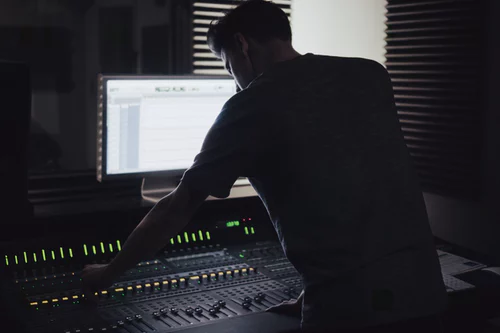
If you are new to the concept of drum machines, you have found yourself at the right place, as we will be walking you through all the basics!
What Are Drum Machines?
No guide to drum machines can be complete without delving deeper into what this particular device is. Essentially, a drum machine is a type of music hardware that has been built to give you the sound and feel of actual electronic drums or other percussion instruments that you may need access to in order to produce a particular style of music you’re looking for.
If you look at the anatomy of a drum machine, you will notice that this device is box-shaped — in most cases — and comes with a keypad that will look pretty similar to the keyboard that your computer comes with.
With the help of a good drum machine — the quality is an important consideration — a beginner, as well as a professional musician, should be able to create drum sounds and even go a step ahead to mix and program these sounds according to his or her needs. This has the capacity of eliminating the requirement of a physical drummer.
5 Best Drum Machines for 2021 [Buyer’s Guide and Reviews]
Learn how to not get burned when buying your first drum machine. We’ve narrowed our choices down to 5 of the best drum machines for 2021!
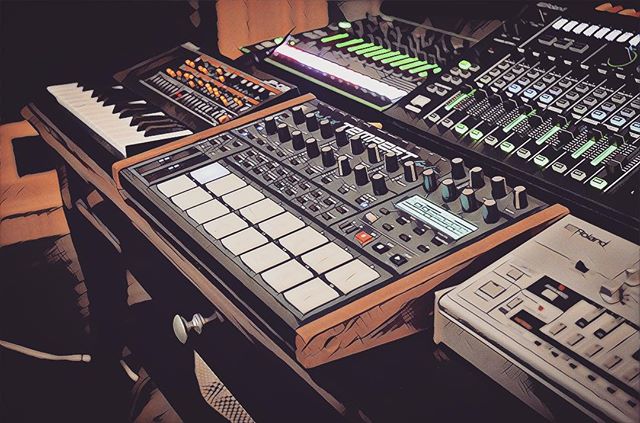
What Size Is the Best for You?
Drum sets are usually large and unwieldy, which makes it difficult for people to lug them around to each and every practice session that they may need to step out for. Instead, a drum machine proves to be a great replacement, as it will be much smaller in size than a physical drum kit.
However, you must keep in mind that even drum machines come in a large number of shapes and sizes. While some may be appropriate for people who don’t move around too much and just have to work out of a studio, portability is a very important consideration for those people who will be carrying it around for sessions. Before purchasing a drum machine, it is important that you look at the size and dimensions of the product and how it will fit into the recording studio space that you have at hand.
Key Features to Lookout For
While size is one of those primary considerations that need to be kept in mind when you are looking to purchase a drum machine, there are also some other things that make a huge difference to the purchase.
Some of these are discussed below:
- Pads — Most of the action takes place at this point as many pads are sensitive to velocity in a way that you get the opportunity to create dynamic variations. It is important to remember that pads are going to be one of the key elements of your drum machine, therefore their size and the features offered by them need to be kept in mind. If they are too small, you may find it difficult to work on them.
- Programming and Control — The flexibility offered by your drum machine is entirely dependent on this factor. It is important that you choose a device that has controls that you can use with relative ease, along with a smooth interface.
- Built-In Effects — Most drum machines come with editing features that allow you to get creative so it is important that you choose one that gives you tons of options. This can help in adding a lot of life to your sound.
Analog vs Digital Drum Machines
One of the major decisions that you will be taking before purchasing a drum machine is whether it is an analog or a digital drum machine that you want to opt for. In order to make an informed decision at this point, you will need to know what each of these have to offer.
The difference between the two — analog and digital drum machines — is very simple but also very important. First, with an analog drum machine, the sound will be synthesized using the drum machine’s own hardware. It doesn’t need any external help. On the other hand, your computer’s hardware will be used for synthesizing the sounds when it comes to digital drum machines.
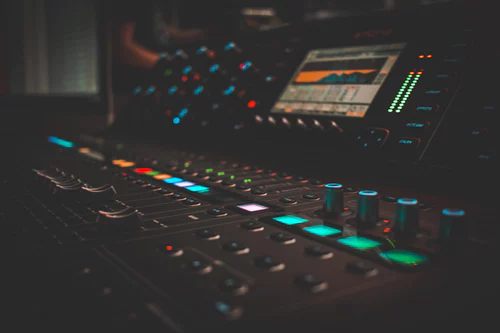
In order to understand how the sound differs, remember that digital drum machines will be able to give you sound that is more realistic. In addition to this, it can be easily integrated into your system and give you a lot of flexibility in use. However, analog drum machines produce a sound that is more authentic.
Memory Capacity
The memory capacity of a drum machine is one more thing that you need to keep in mind while buying one.
Essentially, this is the capacity of your drum machine to store patterns. With a good memory, the machine will be able to upload and save patterns much quicker and with greater ease.
While a smaller memory may not be an issue for people who just use their drum machines casually, if you are a live performer, it is important that you invest in a machine with a good memory.
Do You Want the Ability to Sample Sounds?
Most drum machines come with a set of sounds built into them. However, if you would like to upload your own samples, it is important that you look for a particular drum machine that supports it.
Do not assume that each and every machine in the market will allow you to do this!
Finally, before opting for any particular model, it is important that you consider what you will be using the drum machine for. Every person has different needs and requirements, and the right equipment for them can only be determined on the basis of these needs. Look into yours and purchase the right one!
If you’re looking for a versatile machine to sample drum loops as well as trigger one-hit sounds, you might want to look into purchasing a sampler.


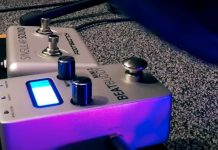
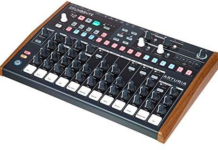

![5 Best 61-Key MIDI Controllers [Reviews & Buyer’s Guide] Native Instruments Komplete Kontrol S61 MK2](https://homestudiohub.com/wp-content/uploads/2020/03/null-32-80x60.jpeg)



![4 Best Electric Pianos Under $500 [Reviews & Buyer’s Guide] Best electric pianos under $500](https://homestudiohub.com/wp-content/uploads/2020/03/null-8-80x60.png)


